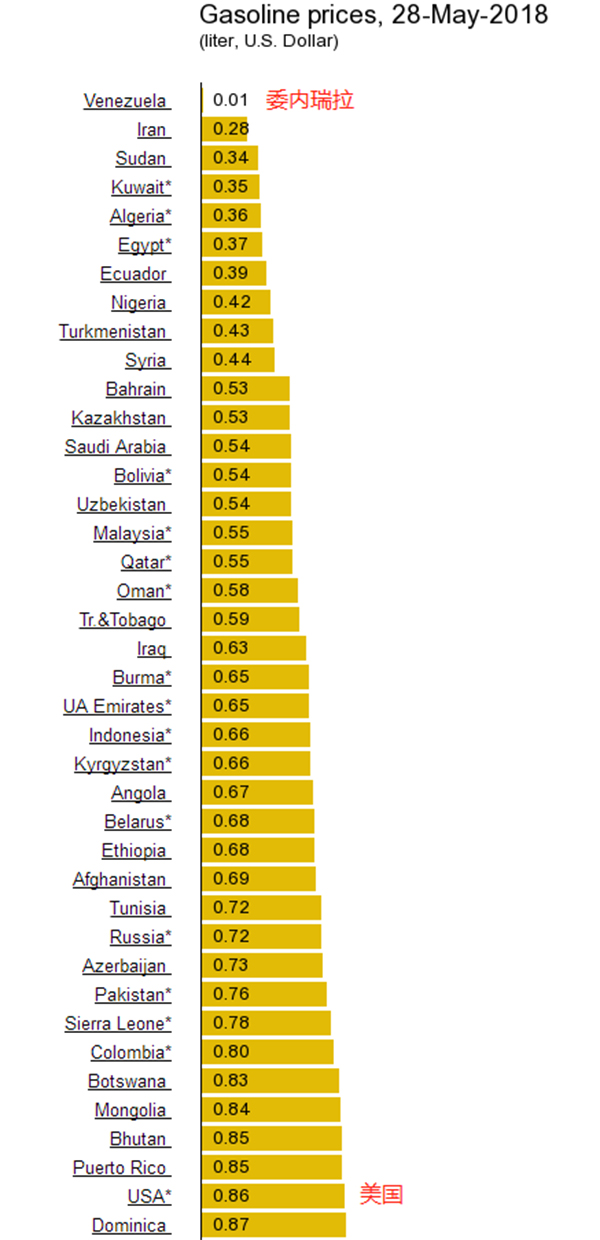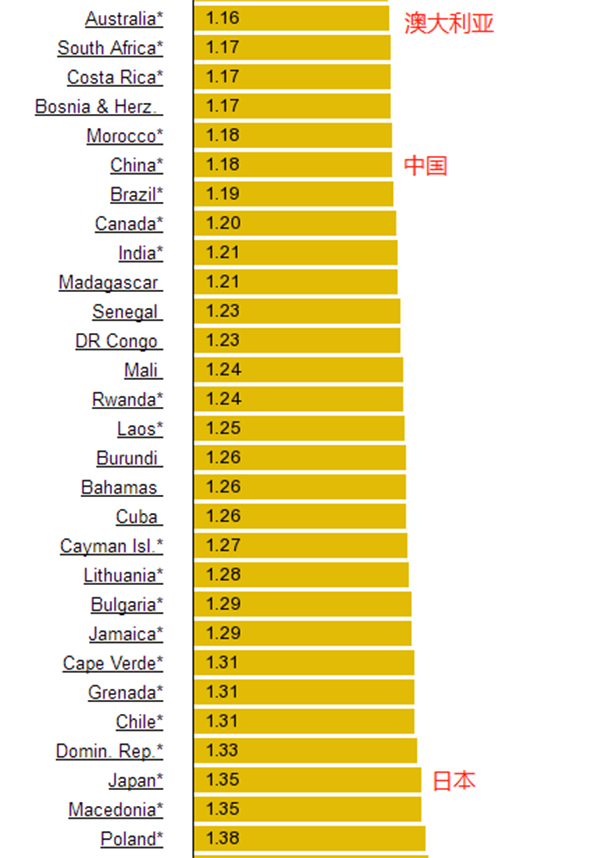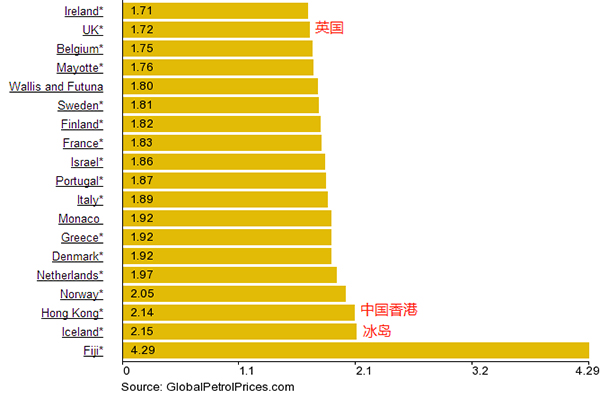In the past decade, international oil prices have halved, while domestic oil prices have risen. What are the reasons?
In the past few days, a screenshot poking fun at domestic refined oil prices has been widely circulated in the circle of friends:
"Ten years ago, on March 20, 2008, the international crude oil was $147 per barrel, and the domestic oil price was 6.3 yuan; Ten years later, on May 26th, 2018, the international crude oil price was $75.56 per barrel, and the domestic oil price was 7.4 yuan. Maybe the bucket is expensive. "
In fact, since the international oil price plummeted in the second half of 2014, similar paragraphs have emerged one after another. From a purely numerical point of view, today’s international oil price is indeed lower than that of ten years ago, and the domestic refined oil price is indeed higher than that of ten years ago. However, the pricing mechanism of refined oil in China is not as simple as many people think, especially when the consumption tax on refined oil has increased by nearly seven times. It is unreasonable to simply compare the figures. To discuss the comparison of oil prices between 2008 and today, we need to consider the following factors:
petrol quality upgrade
In 2008, private cars still drank the national standard gasoline, and today it is the national standard gasoline ten years later. The "2+26" cities including Beijing, Tianjin and Hebei have been upgraded to the national standard in advance. When oil products are upgraded, prices naturally rise. According to the statistics of Zhuo Chuang Information, a market organization, the price increase standards for automobile gasoline and diesel from the third country to the fourth country are 290 yuan and 370 yuan per ton respectively; The price increase standards for upgrading from National IV to National V are respectively 170 yuan and 160 yuan per ton. That is, the total price of gasoline is increased by 460 yuan/ton, which is equivalent to the price increase of No.92, which is 0.36 yuan.
The consumption tax on refined oil has increased by nearly seven times.
The consumption tax on refined oil refers to the tax paid by consumers when they consume refined oil. It is paid by the main units such as refineries at the initial stage of production, commissioned processing and import. The collection targets include seven subheads, including gasoline, diesel oil and fuel oil, which belong to the central tax category. China began to levy consumption tax on gasoline in 1994. In 2008, the domestic consumption tax on gasoline was only in 0.2 yuan/liter.
From the end of 2014 to the beginning of 2015, the domestic consumption tax on refined oil was raised three times in 45 days. At that time, the Ministry of Finance said that the consumption tax in China is not generally levied, but only on "some consumer goods with high energy consumption, high pollution and high consumption". "The consumption tax on refined oil is conducive to promoting resource conservation and curbing excessive consumption of energy, which is a relatively common practice in the world." Regarding the timing of raising the tax rate, the Ministry of Finance explained that "choosing to implement it when the oil price goes down not only did not lead to an increase in oil prices due to tax increase, but also realized the synchronization of tax increase and price reduction, taking into account the macro-control needs and social affordability."
After three upward adjustments, the gasoline consumption tax was 1.52 yuan/liter, which has been maintained to this day.
In addition to consumption tax, China consumers also need to pay value-added tax and urban construction tax when purchasing refined oil. It is roughly estimated that the tax burden cost of circulation links accounts for about 40% of the total refined oil price.
"At present, domestic refined oil products include 1.52 yuan/liter consumption tax, 16% value-added tax and 12% other taxes and fees. Due to the different oil prices in different regions of China, the proportion of taxes and fees is also different. " Xu Na, a refined oil analyst at Zhuo Chuang Information, told The Paper (www.thepaper.cn) that the current price of No.92 gasoline in Guangzhou is 7.44 yuan/liter, including 1.52 yuan/liter consumption tax, 1.03 yuan/liter value-added tax and 0.31 yuan/liter other taxes. Therefore, on the whole, the price increase of Guangzhou No.92 gasoline includes 2.86 yuan tax, accounting for 38.4%.
In addition, the tax burden of refined oil products in different countries in the world is not horizontally comparable, because the tax burden is related to national policies, oil production capacity, per capita income level and social welfare.
Changes of refined oil pricing mechanism
Ten years ago, there was no price adjustment cycle for domestic refined oil products, which was not closely related to international oil prices.
The current refined oil price mechanism stipulates that the prices of gasoline and diesel are adjusted every 10 working days according to the changes of crude oil prices in the international market, and the effective time of price adjustment is 24: 00 on the release date of price adjustment. As long as the international oil price is between the "floor price" of $40/barrel and the "ceiling price" of $130/barrel, the change rate should be adjusted if the adjustment range of gasoline and diesel exceeds that of 50 yuan. When the price adjustment range is lower than the 50 yuan per ton, no adjustment will be made, and it will be added or offset in the next price adjustment.
Because of this, after the international crude oil price soared to an all-time high of $147 per barrel in 2008, the domestic refined oil price did not rise as the international oil price soared. For the smooth operation of the domestic economy, domestic "two barrels of oil" did "pay the bill" for high oil prices.
At the beginning of 2015, a paragraph about oil prices was widely circulated on the Internet: "Today (March 20th) is a special day. Seven years ago, today in 2008, the international crude oil was $147 per barrel, and the oil price in China was RMB per liter in 6.3 yuan. Today in 2015, the international crude oil is 43 dollars per barrel, and the China oil price is still 6.3 yuan RMB per liter. Is the oil price going up or down? " Just a few words have attracted countless spit and controversy.
In this regard, Sinopec claimed to be "the big head" in the official Weibo: "Today (referring to March 21, 2015), the international crude oil is 43 US dollars per barrel, and the EU is about 9.1 yuan and China is about 6.3 yuan per liter. Seven years ago, today in 2008, due to the economic situation in China and the pressure from all sides, the price adjustment of domestic refined oil was reduced. The international crude oil was US$ 147 per barrel, while the EU was about RMB 14.8 per liter, while China was only 6.3 yuan per liter. Who is ‘ Big head ’ , you know. "
The following figure shows the global ranking of gasoline price increase as of May 28, 2018 (part):


